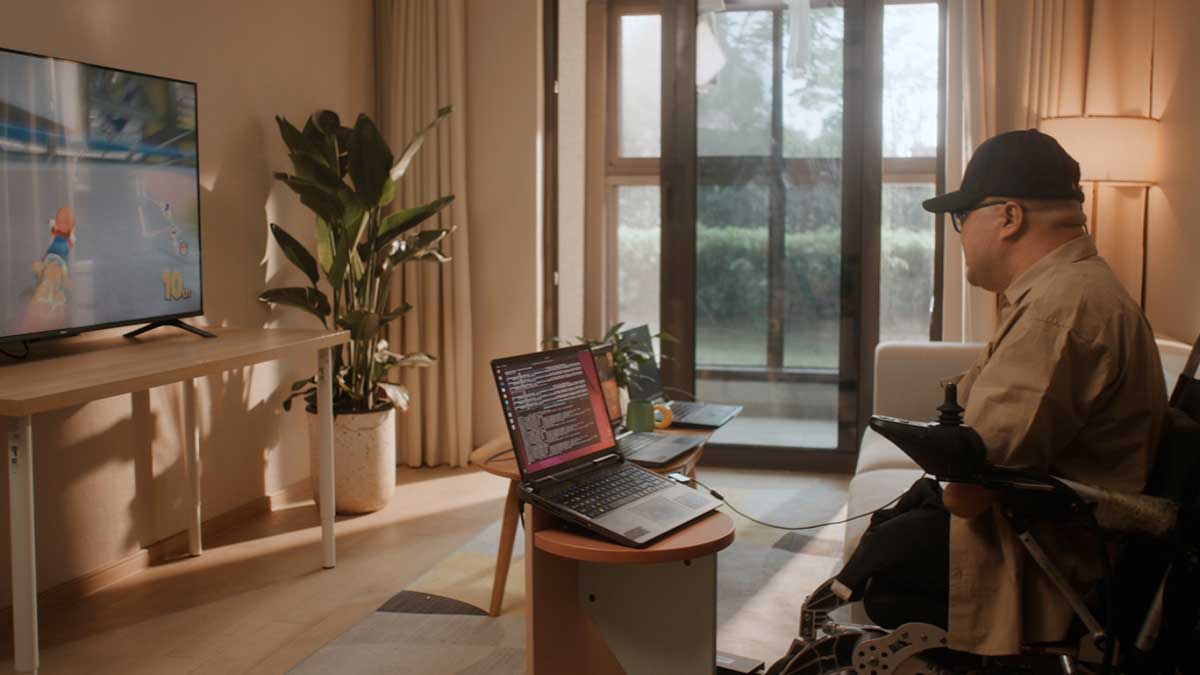China launches first-ever invasive brain-computer interface clinical trial — Tetraplegic patient could skillfully operate racing games after just three weeks
Next up - robot arm control trials, with regulatory approval and market availability expected by 2028.

China's first in-human clinical trials of an invasive brain-computer interface (BCI) have launched, according to state media reports. This makes China second in the BCI race after the U.S., with its Neuralink technology, to enter the clinical trial phase for invasive BCI technology.
Ahead of upcoming larger-scale trials, this new BCI from the Shanghai-based Center for Excellence in Brain Science and Intelligence Technology (CEBSIT) already seems to be a success. The country's Global Times states that a tetraplegic patient has already been using its BCI to control a computer, play racing games, play chess, and more.
"Now I can control the computer with my thoughts. It feels like I can move at will," said the unnamed tetraplegic to Global Times. Some background to the patient’s condition is provided by the source. Apparently, the patient lost both arms and both legs in a high-voltage electrical accident 13 years ago.
The man received an implant on March 25. Recovery was speedy, and just two to three weeks later, he was “able to control electronic devices with his mind, skillfully operating racing games, chess, and other programs,” says the source. It isn’t that long ago, but the report assures that “no infection or electrode failure reported to date.”
Progressing from computer interaction, the scientific team hopes to let its first patient get involved with robotic arm movement control trials. Added dexterity like this could enhance the patient’s quality of life. Longer-term plans involve interactions and training with robots, and similar intelligent devices that span the computer–physical realms.
The Chinese state media reports aren’t without their characteristic boasts. Comparing the new CEBSIT BCI with Neuralink, they say the former has “a cross-sectional area only 1/5 to 1/7 that of Neuralink's electrodes and flexibility over 100 times greater.” It adds that the neural electrodes used are the smallest and most flexible in the world. Their size and flexibility are better for the patient, so they barely perceive the implant’s presence. Moreover, such compact BCIs will minimize damage to surrounding brain tissue and provide better prognosis over the longer term. Overall, the CEBSIT implant is said to be 26mm in diameter and under 6mm thick.
With larger-scale clinical trials now greenlit, BCI systems such as this one from CEBSIT are expected to gain regulatory approval and enter the market in China by 2028. If these trials are a fair indicator of BCI benefits, they could “significantly improve the quality of life for millions of patients with complete spinal cord injuries, bilateral upper limb amputations and amyotrophic lateral sclerosis,” notes the Global Times.
Get Tom's Hardware's best news and in-depth reviews, straight to your inbox.
They've beaten Beinao
We were a little surprised by the 'first' claims from CEBSIT today. Previously, we have reported another Chinese BCI project that seemed to be in its advanced stages. In April, we covered the news that a patient in China had been enjoying playing complex PC games such as Black Myth: Wukong and Honor of Kings using the Beinao-1 BCI implant. However, more recent reports suggest the Beinao-2 is being tested in monkeys and will be ready for human trials by the end of 2025, so they've been beaten to the large-scale human trials milestone by CEBSIT.
Follow Tom's Hardware on Google News to get our up-to-date news, analysis, and reviews in your feeds. Make sure to click the Follow button.

Mark Tyson is a news editor at Tom's Hardware. He enjoys covering the full breadth of PC tech; from business and semiconductor design to products approaching the edge of reason.